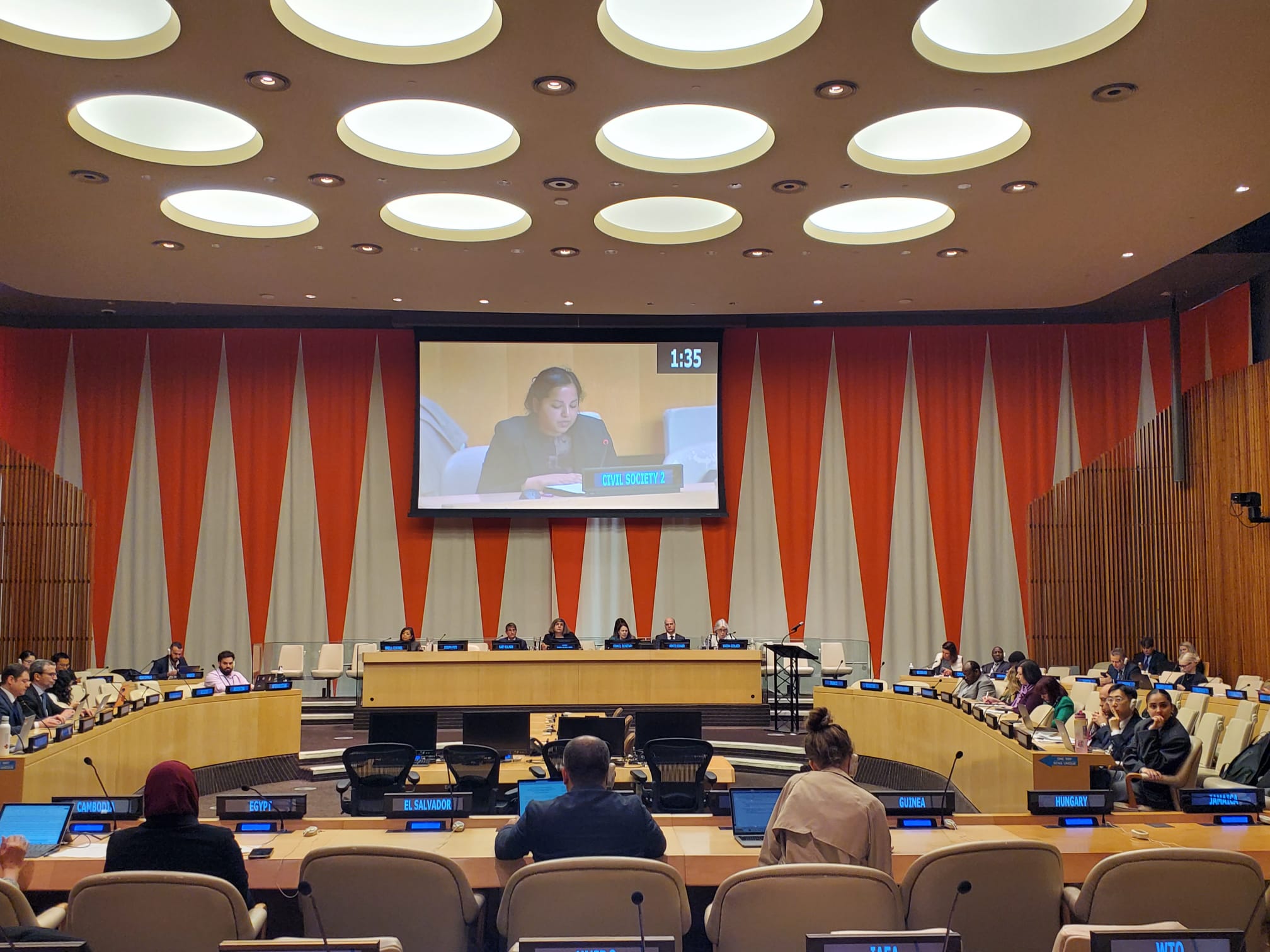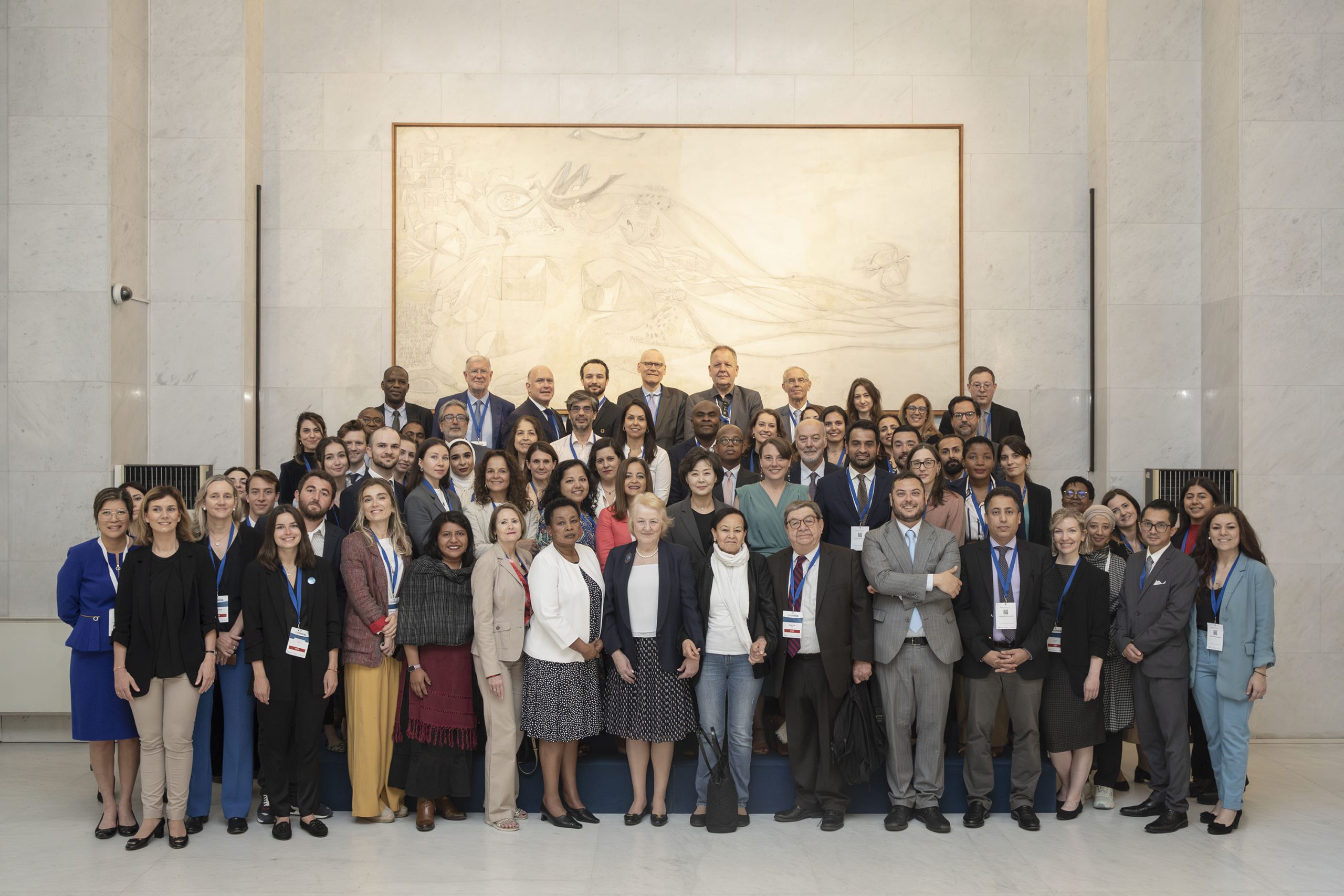History and Values
History
The Quaker United Nations Office (QUNO) was founded in 1948 as a Quaker presence at the United Nations (UN). Our offices in Geneva and New York represent the worldwide community of Quakers on behalf of Friends World Committee for Consultation (FWCC). In both locations, QUNO’s work reflects the concerns and shared goals of Quaker communities and Quaker service agencies. Advocacy priorities are shaped by Quaker values and focus on long-standing Quaker commitments to peace and non-violence, justice, equality, and stewardship of the environment. QUNO works with a variety of UN bodies, UN Member States, non-governmental organizations (NGOs), and others to foster peace and justice.
For over 75 years, QUNO has played a quiet but effective role in shaping international systems, law and responses to the challenges facing humanity, and supporting practices that promote peace and address root causes of harm. Notable achievements across this history include impactful work that contributed to bans on the use of landmines; prohibitions against recruitment of child soldiers; curbs on the trade of illicit arms; improvement in access to medicines that mitigate the ravages of HIV and AIDS; centering peace in and promoting the UN Sustainable Development Goals; and more.
QUNO maintains Quaker Houses in both New York and Geneva that serve as safe spaces for dialogue between diplomats, UN officials, and partner organizations. In off-the-record conversations and facilitated discussions, participants are encouraged to listen, to connect as people despite different perspectives and expertise, and to seek common goals and ways of working together. As a result of these meetings, the Quaker Houses have served as the conduits of ideas that have since been enacted on the global stage, including the Law of the Sea Treaty, the Declaration on the Rights of Indigenous Peoples, and UN responses to the 1994 genocide in Rwanda and Burundi.


We remain dedicated to the vision of a just and peaceful world, drawing on our legacy and responding to current challenges. Our work today includes efforts to mitigate plastics pollution and other anthropogenic driving factors of the climate crisis; centering peace and human rights in UN initiatives; addressing the dehumanization of migrants; and building support for peaceful solutions to protracted violent conflicts like those in Myanmar, on the Korean Peninsula, and between Israel and Palestine.
Quaker Values
Quakerism emerged in England in the 17th century, a time of rapid political and religious change. It was a form of Christianity that emphasized the direct relationship between individuals and the Divine. Quakers (who also use the name “Religious Society of Friends”, or just “Friends”) include considerable diversity in religious observance and spiritual expression. Quaker churches, or meetings, are now found around the globe with a majority in Africa and the Americas.
Spiritual insights, often called “testimonies”, tend to unite Quakers worldwide. They spring from deep experience and have been reaffirmed by successive generations of Quakers. These testimonies are currently expressed as integrity, equality, simplicity, community, stewardship of the Earth, and peace. They arise from an inner conviction and challenge normal ways of living. They require individuals and communities to search for ways to put them into practice. The Quaker commitment to non-violence and equality in thought, word and deed is based on the idea that all human beings contain that of the Divine.
Over the past 400 years, Quakers have sought to live out these values, both individually and as a community. Following this path has led Quakers to be early advocates against slavery, promoters of women’s rights and better prison conditions, and to support building harmonious relationships between peoples and nations. In particular, most Quakers are pacifists, and seek non-violent, sustainable ways of addressing conflict, whether at a personal, communal, national or international level. Quaker churches, or meetings, are now found around the globe with a majority in Africa and the Americas.
